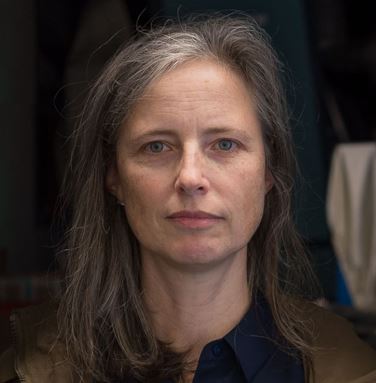Cost: £150
Book a place
Overview
This course, taught by acclaimed artist, filmmaker and lecturer Miranda Pennell, will examine how we engage with archives, cultural memory, and history.
You'll look at films and videos whose source materials are drawn from state archives, from amateur, family, or ‘counter-archives’.
You'll also see those that harvest material from the internet, or that steal from the history of fiction cinema production, as well as artists’ works that transform discarded junk into meaningful social documents.
Content
The topics you'll address include the ethical questions that confront makers and audiences alike when image and sound recordings are ripped from their original context and re-appropriated to new ends.
You'll consider the dehumanising or exclusionary gaze in the archive, as well as some of the creative strategies artists and filmmakers have used to produce ethical reworkings of materials associated with our troubled pasts.
The practice of making new films from recycled fragments opens exciting opportunities for exploring past events. And, crucially, it allows audiences to also reflect critically on the histories of image-making from which those fragments emerge.
The course content consists of:
1. Compilation, found-footage and other remix practices
Taking a historical perspective, you'll look at uses of archival material in film and video production to reveal divergent attitudes to audio-visual media, to audience reception, and to history itself.
2. Towards an ethics of appropriation
You'll consider the radically shifting meanings of the recycled image fragment, from internet meme to archival film. What sort of ethical frameworks do we use when it comes to evaluating the creative use and misuse of film fragments?
3. The perpetrator’s gaze: film as repair and resistance
What creative strategies have filmmakers and artists used to disrupt or reverse the cinematic gaze when working with materials that dehumanise and erase certain groups, while elevating and sanitising others?
4. Listening to images
Unlike written documents, image and sound recordings tend to contain unfiltered, uncensored ‘noise’ which exceeds the intention of the original filmmaker, and which resists full comprehension or interpretation. How can we use the ambiguous or disruptive qualities of recordings to give meaning to our perception of history?
5. Fiction’s unconscious
Some artists and filmmakers have raided the history of fiction cinema, transforming fragments of fiction film into documents that speak to us of the social relations embedded in the experience of cinema. What is it about this process that is so compelling?
6. Questions of practice
The first part of the session addresses practical issues, including legality and rights when using third party materials. In the second part, we will discuss student experiences of looking through archives and/or viewing archive-based film.
Course structure
The course is taught through:
- lectures
- group discussions
- brainstorming sessions
This online course takes place across six Tuesday evenings (7pm to 9pm).
If you have any enquiries regarding this course, please contact shortcourses@opencitylondon.com or call +44(0)2031084774.
Who is this course for
There are no entry requirements, but this course is aimed at artists, film makers and scholars interested in the subject.
Learning outcomes
Upon completion of the course, you'll:
- have a working knowledge of the historical and contemporary use of archival material within documentary filmmaking.
- be able to evaluate the creative use of archival material through critical and ethical questions
- have gained the skills needed to write about and/or curate films that use archival footage
- learned about legal and rights issues when using archival footage and how to engage with these when making their own films.
Course team

Miranda Pennell
Miranda is an artist, filmmaker and lecturer. Her moving image work explores ways of engaging with repressed histories. She uses materials sourced from visual archives as a starting point for reflecting on Britain's colonial legacies. She combines archival images with those from her immediate environment to create slippages between past and present and between personal and collective history. Recent screenings include Berlinale, New York Film Festival, Viennale and London International Film Festival in 2021. Recent group exhibitions include Intersectional Geographies (2022) Martin Parr Foundation, Bristol; Visions of Empire (2021) Padrao dos Descobrimentos, Lisbon; Tanzbilder (2019) and New Museum for Art and Design, Nuremberg. Some of her films are available for streaming via the platform Doc Alliance Films. Miranda has an MA in visual anthropology from Goldsmiths Colledge London, and her doctorate from the University of Westminster explores the visual archive of the Anglo-Iranian Oil Company (now BP) and personal, family photographs from Iran. She is currently artist-in-residence at Birkbeck’s Centre for Law and the Humanities.
Book a place
Course information last modified: 30 Nov 2022, 16:01
 Close
Close

